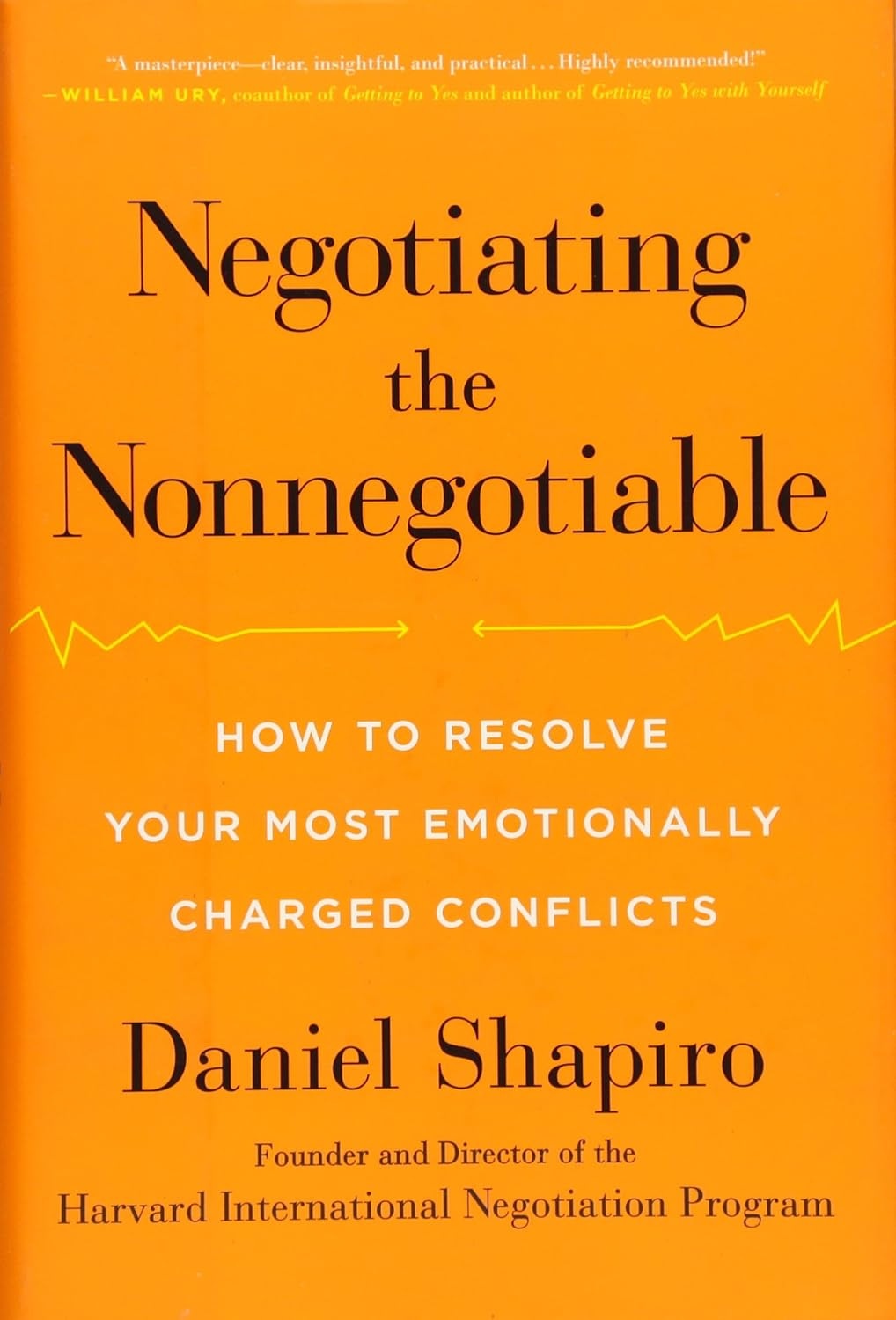Negotiating the Nonnegotiable: How to Resolve Your Most Emotionally Charged Conflicts
Discover Five New Ways to Manage Tense Situations and Heal Relationships
Good evening, friends! Welcome to the ReadVault Club. I'm Tom Niklas, a seasoned writer and book reviewer. Please subscribe to me and join us in reading 52 books a year together.
I specialize in providing book reviews on personal growth, leadership, family and parenting, mental health, humanities, and history. I aim to assist busy citizens enjoying the benefits of reading books but struggling to find the time.
To help more people to read books easily, don't forget to like, share, and comment below. Your actions are helping more people.
Today, I will talk about a book on personal growth called “Negotiating the Nonnegotiable: How to Resolve Your Most Emotionally Charged Conflicts,” by Daniel Shapiro. This book helped me understand conflict in a whole new way. It is a game-changer to understand and resolve those tough conflicts that feel impossible to work through. Those conflicts leave you feeling angry, frustrated, and stuck.
The author, Daniel Shapiro, is a professor at Harvard, and he's spent years studying what causes conflicts to escalate, especially those messy ones where our emotions get tangled up. Let's get started!
Why This Book Matters:
So, why am I so excited about this book? Well, it all started with a story that really stuck with me. Shapiro talks about this experience he had years ago, leading a conflict resolution workshop for teenage refugees in Yugoslavia. These teens had been through some incredibly tough stuff, having witnessed violence and lost loved ones during the war.
One of the participants, a young woman named Veronica, shared a horrifying story about watching her boyfriend get murdered right in front of her. The image of her pain, her trauma, really stayed with Shapiro. It made him realize that we need better ways to deal with conflicts, especially those that touch on our deepest values and beliefs.
The Big Problem: The Tribes Effect
That brings us to the core concept of this book, the "Tribes Effect." Think of it like this invisible force that divides us into “us” and “them” – like we're all part of different tribes battling for territory. The crazy thing is that it doesn't take much to trigger this tribal mindset. It could be something as small as disagreeing about a political issue, or as big as fighting over a piece of land.
Shapiro argues that the Tribes Effect shows up everywhere. It is in our personal lives, at work, and even in global politics. Think about those arguments you've had with your partner, your family, or your coworkers where everything felt so emotionally charged. It’s like you suddenly couldn't see each other's point of view, you just wanted to be "right." That's the Tribes' Effect in action.
The book goes deeper and talks about how this tribal mindset makes us do things that seem irrational. He uses this example of a group of world leaders who got together for a negotiation exercise, and guess what? They ended up “blowing up the world” rather than compromising on their beliefs!
The point is that the Tribes' Effect is a powerful force. It can lead us down a path of conflict and destruction. It's like we get so caught up in protecting our tribe that we lose sight of the bigger picture, the shared interests we might have with the “other side.”
Keep reading with a 7-day free trial
Subscribe to ReadVault to keep reading this post and get 7 days of free access to the full post archives.



